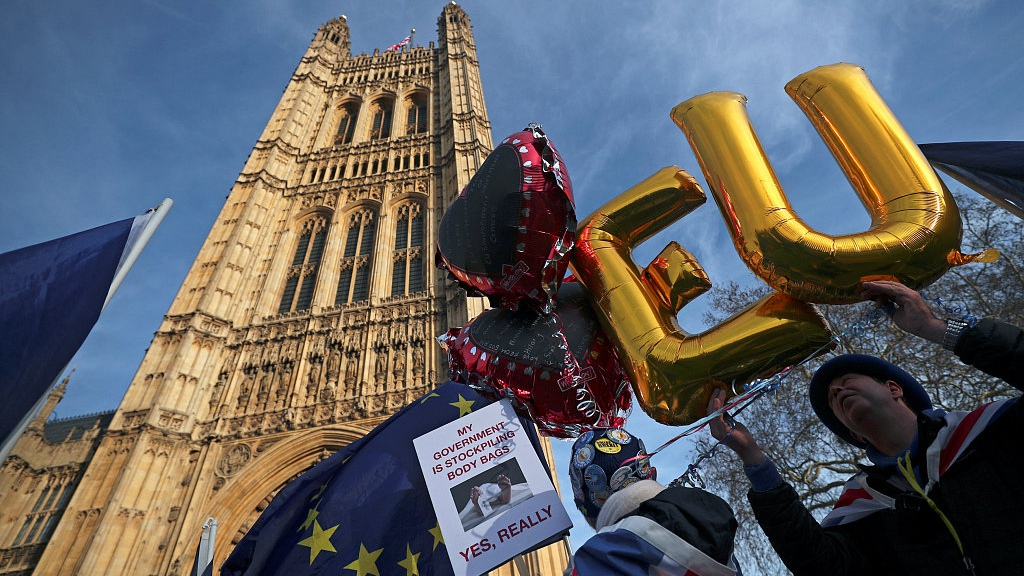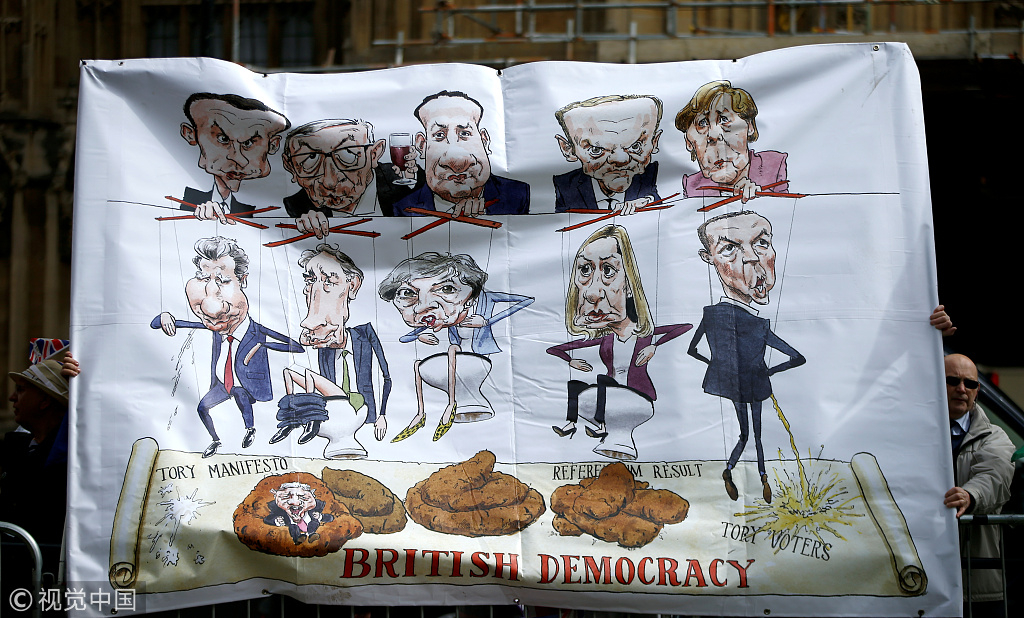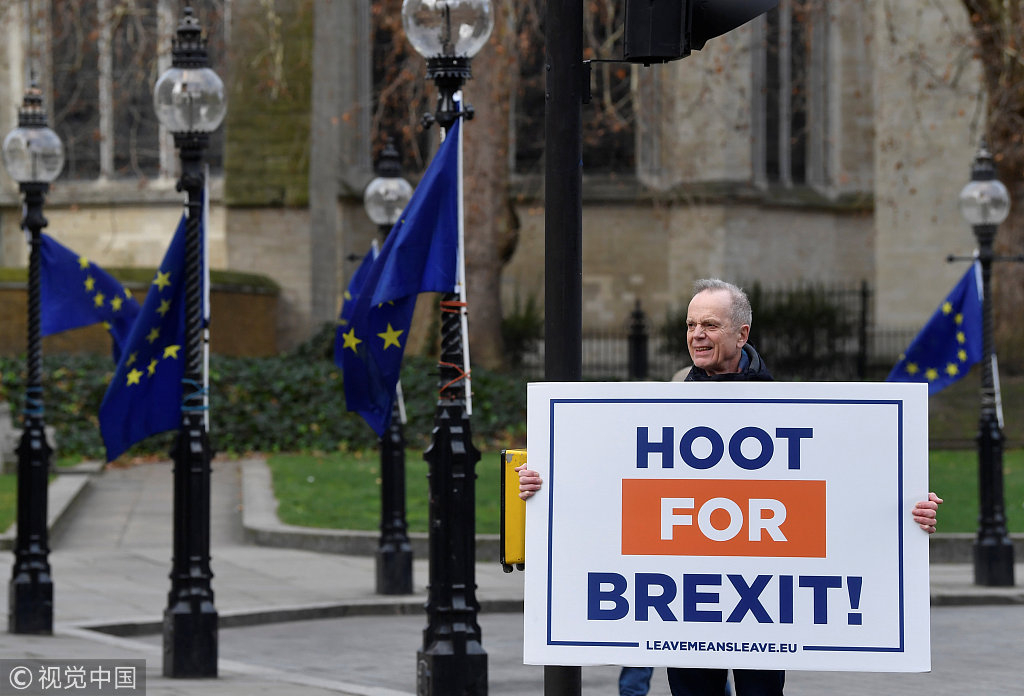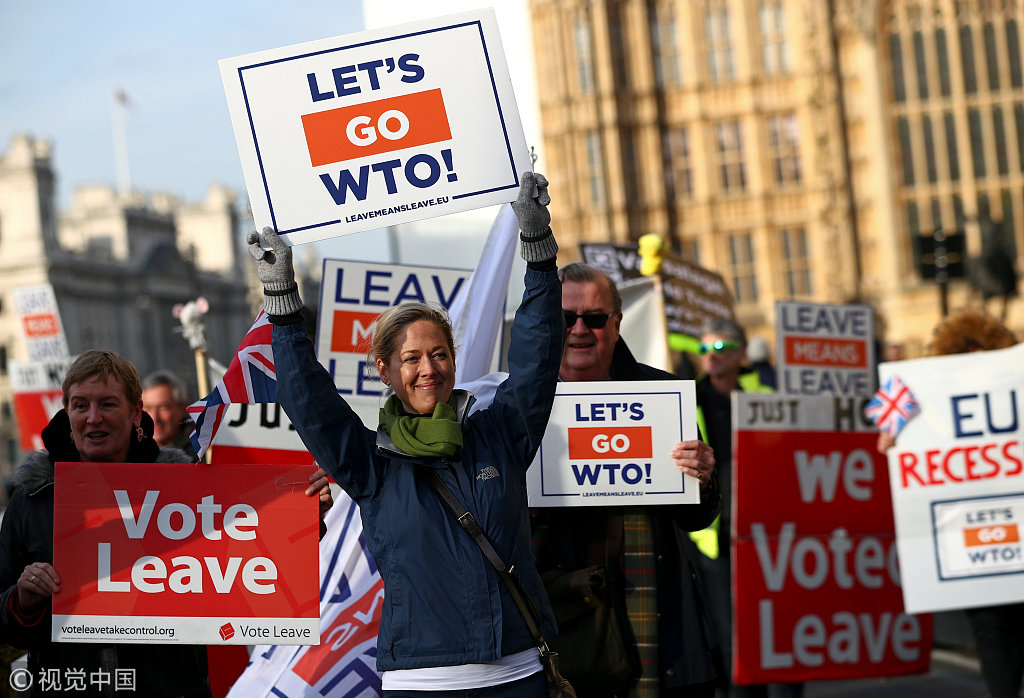
Opinion
07:32, 09-Apr-2019
UK's Brexit faces biggest test
Updated
10:32, 09-Apr-2019
Thom Brooks

Editor's note: Thom Brooks is dean of Durham Law School and professor of Law and Government, Durham University. The article reflects the author's opinion, and not necessarily the views of CGTN.
Over two years ago, British voters supported Brexit by a small margin. The deep divisions among the general public have continued in Parliament. We know what Members of Parliament do not want – like a No Deal outcome – but there is still no majority for a particular plan for Brexit.
Prime Minister Theresa May lost three historic votes on a plan she had agreed with the European Union that would see the UK leaving with a plan if Parliament approved it. But each time Parliament said no.
Normally, May would be forced from office in failing to pass key legislation. These are not normal times. Before Christmas, she survived an attempt to remove her as leader but with no one confirming they wanted her job. She won a modest victory that makes her safe from another challenge in her own party until November.

Pro-Brexit protesters hold a banner, as Brexit wrangles continue, outside the Houses of Parliament in London, Britain, April 4, 2019. /VCG Photo.
Pro-Brexit protesters hold a banner, as Brexit wrangles continue, outside the Houses of Parliament in London, Britain, April 4, 2019. /VCG Photo.
This leaves the huge problem of a weak, immovable Prime Minister with a deal unpopular with Parliament and the public.
May's solution has been to hold talks with the leader of the opposition, the Labour Party's Jeremy Corbyn, to agree a compromise Brexit plan that Parliament could support.
This faces problems for each side. May has been arguing for years that Corbyn was unfit to become Prime Minister. In effectively begging him for help, she acknowledged the need to get Labour MPs to pass her plan because many in her own party are strongly opposed to it. Yet in trying to make practical progress towards passing the deal, May risked infuriating members of her own party that distrust Corbyn and highly concerned Brexit will be weakened in their eyes by working with Labour.
There are problems for Corbyn too. His position has been elevated, but he risked having his fingerprints on what will almost certainly be seen as a Tory Brexit plan. Labour party members are as strongly pro-Remain as Tory grassroots are pro-Leave and Corbyn will be under enormous pressure to ensure a referendum on any deal.

A pro-Brexit protester holds a placard near the Houses of Parliament in London, Britain, January 14, 2019. /VCG Photo.
A pro-Brexit protester holds a placard near the Houses of Parliament in London, Britain, January 14, 2019. /VCG Photo.
These are problems enough, but it gets worse. The two sides are already late in agreeing terms ahead of a key EU meeting this week that will be pivotal in deciding what happens next. There is also no time left for each to explore more fully where a deal can be struck. Everything is being done at the eleventh hour.

Pro-Brexit demonstrators protest outside the Houses of Parliament in Westminster, London, Britain, February 13, 2019. /VCG Photo.
Pro-Brexit demonstrators protest outside the Houses of Parliament in Westminster, London, Britain, February 13, 2019. /VCG Photo.
The talks seem doomed from the start. The Prime Minister has made clear that she simply will not consider changing the Withdrawal Agreement deal that has already lost three times in Parliament. It raises the question of how there can be a compromise when the weaker party is refusing to change their position. But this is the situation the UK finds itself in.
The Prime Minister has asked for a brief delay to Brexit mainly to get something passed fast and avoid the UK being roped into EU Parliamentary elections. It is almost very unlikely the EU can agree to this as May will come to Brussels this week without a new plan for how she can win Parliament's support. A longer extension is most likely to be offered to give the UK the time is will surely need to come up with a new vision and plan for Brexit, if Brexit is to go ahead.
If May gets a long extension, her party looks set to be gravely affected in the EU elections and local elections this spring. She has promised Brexit by 2019 March 29 and did not deliver.
However, if there is no extension given, the UK will face a choice of No Deal or stopping Brexit. Given the lack of planning for No Deal undertaken, the government will almost certainly seek to pause Brexit until after a general election.
Either way, this week is the biggest yet for Britain on Brexit. The only thing we can expect for near certain is Brexit will not happen this week and almost certainly not happen this year, if ever. Project Reality of the costs and complexity of leaving the EU is beginning to take hold.
(If you want to contribute and have specific expertise, please contact us at opinions@cgtn.com.)

SITEMAP
Copyright © 2018 CGTN. Beijing ICP prepared NO.16065310-3
Copyright © 2018 CGTN. Beijing ICP prepared NO.16065310-3